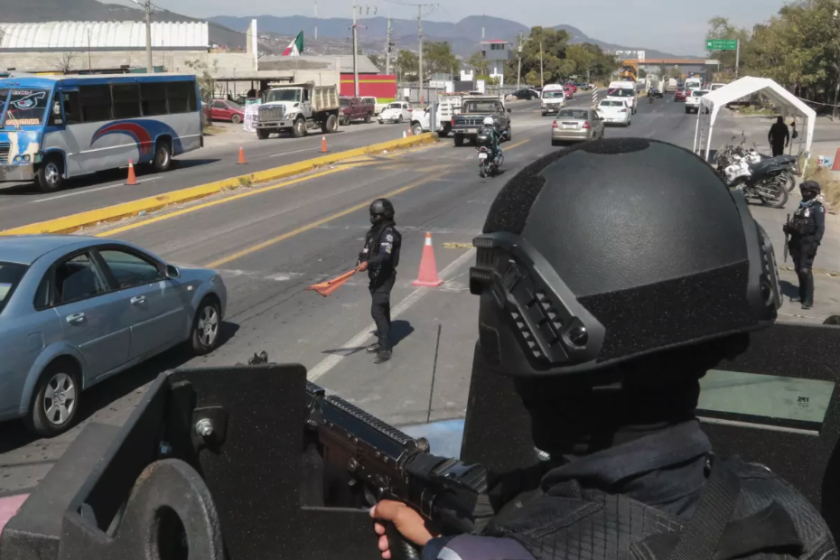Jako: Mexican lawmakers’ best friend and protector
He runs, sniffs and sits down in front of a suspicious vehicle. That is Jako’s task if he discovers a bomb in a parking lot for Mexico’s Chamber of Deputies, the lower house of congress, whereupon security teams will prepare to remove the dangerous device.
Jako is one of six dogs with the canine unit tasked with scouring the San Lazaro Legislative Palace in Mexico City looking for explosive devices and his work on Sunday is part of the training program to perfect his ability to protect the lower house’s 500 members.
“These dogs are trained to detect explosives and to thoroughly search the Chamber of Deputies to provide security for the people who go in and those who work there,” the dogs’ handler and the head of the canine unit, who requested anonymity due to security protocol, told EFE on Sunday.
Early in the morning, the dogs, which can detect the scent of nine different types of explosives, scour the perimeter of the facility and later move through lawmakers’ offices and the assembly chamber, performing the same run in the afternoon and in the evening.
Although they may not uncover a real threat, the security team is responsible for placing benign “suspicious objects” for the dogs to find because “each time they go out they have to detect something to maintain their technical operational level,” the official said.
The breed of each of the dogs is taken into account when assigning their duties to them, with the unit consisting of Belgian Malinois shepherds, a golden retriever and a labrador.
“On the exterior (of the complex) we use Malinois because they’re a little more imposing, while we use the labrador (and retriever) to work inside, in the lawmakers’ offices or in the chamber, because they have a calmer and more sociable look,” the handler said.
That doesn’t mean that Jako, a two-and-a-half-year-old Malinois, is an aggressive dog, and in fact he is quite friendly with his handler during playtime, which lasts about two hours each day in a big garden in the chamber complex.
That is where the six dogs live in adjacent cages, something that doesn’t happen elsewhere because they’re considered to be “dominant dogs” and they could get into spats or fights with each other.
After running around in the yard, it’s time for training and Jako is taken to the chamber parking lot, where each day hundreds of vehicles are inspected.
One of the handlers has placed a packet smelling like explosive under one of the cars parked there, and Jako only needs a few minutes to locate it.
“The dog has to sit down and not touch the object. The important thing is for him, without touching it, to find, detect the scent and sit down,” the official said.
When three dogs have detected a suspicious scent, the protocol for the bomb squad is activated and they cordon off the area in a radius of 100 meters (yards).
Lucas, a long-haired three-and-a-half-year-old golden retriever, acts in the same way, but he does so inside the immense chamber where lawmakers meet, although he doesn’t intimidate anyone because of his friendly demeanor.
The hall must be searched before each legislative session, meaning that the dog must sniff at each of the 500 desks and at the lectern and elsewhere looking for any threat to lawmakers.
The head of the canine detail says that in its almost 10 years of existence “fortunately” no real explosives have been found, although “several weapons” have been located.
To acquire the dogs, the Chamber of Deputies opens a public bidding at which companies present individual animals and the security team chooses those who can detect scents most easily and can adapt to the surroundings well.
However, now for the first time, the unit is seeking a family that might want to adopt one of the dogs - Blackie, a black labrador who is eight years old, the equivalent of age 70 for a human, the security chief said, adding that the dog’s age is starting to limit his movements and increases the risk that he will injure himself during the searches.
Recently, the canine unit has also expanded its activities to run a program to raise public awareness about treating dogs well in the home.
“We’re going to the city halls so that people gain a little awareness about how to handle dogs so they can control puppies and not let them get outside. This is being expanded with very good results,” the canine security chief said.


